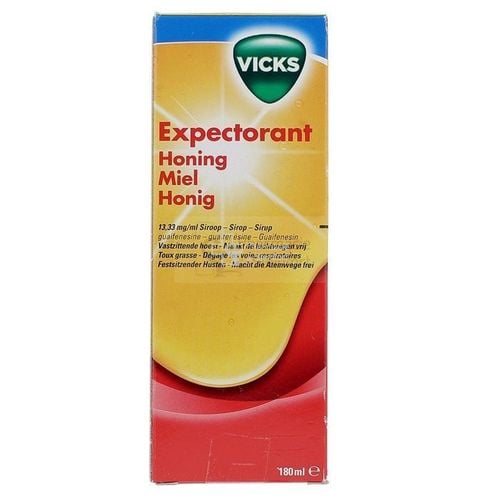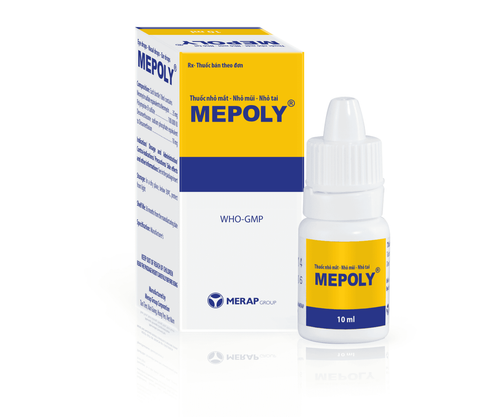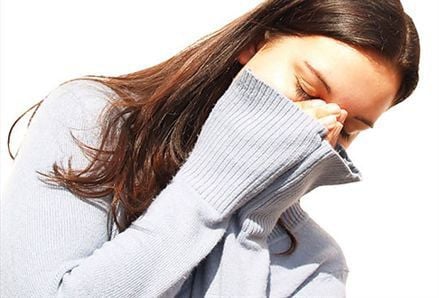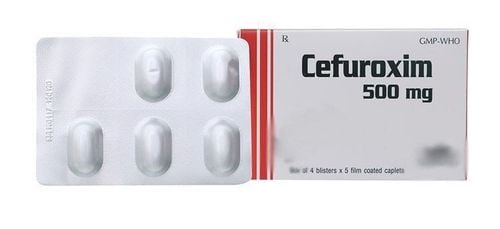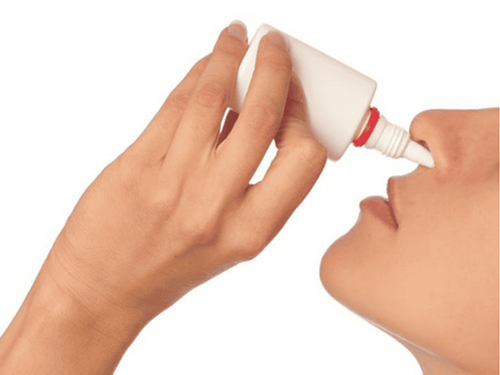This is an automatically translated article.
The article was professionally consulted by resident Doctor Duong Van Sy - Neonatologist - Pediatrics - Neonatology - Vinmec Hai Phong International General HospitalVA curettage for children is performed when VA in children occurs repeatedly, causing dangerous complications. VA is a beneficial lymph node organization in the oropharynx, which works against pathogens such as bacteria and viruses for children. However, it is because of the reaction to the causative agent that children often develop VA.
1. When to cure VA?
VA is a good organization for the body to fight pathogens, but if the inflammation keeps coming back many times, it will cause complications near and far for the child such as:
Hypertrophy of the VA makes the child have to breathe with mouth, snoring, nasal congestion, sleep apnea... Affects the oxygen supply to the body, especially to the brain, adversely affecting the physical and intellectual development of children. Enlarged VA affects a child's sense of smell. Enlarged VA can cause blockage of the eustachian tube, causing middle ear infections, hearing loss and affecting the language ability of children. Hypertrophic VA causes blockage and accumulation of mucus in the sinuses, causing sinusitis. Frequent inflamed VA is also the home of pathogenic bacteria, from which they can attack and cause respiratory infections, otitis media.... repeated many times (> 5 times/year). VA with ineffective medical treatment causes complications. Overexposure of VA causes obstruction of the back door, causing long-lasting stuffy noses, obstructing the airway. Contraindications: when the child has blood diseases, severe heart disease, advanced tuberculosis.
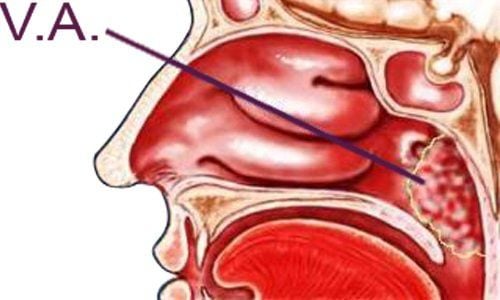
2. What to pay attention to in the process before-during-after surgery
2.1 Before surgery
In order to perform the surgery successfully and safely for the child, parents need to follow the following principles:
Within 7-10 days before the surgery, do not arbitrarily give the child anti-inflammatory drugs such as: ibuprofen, Indomethacin and naproxen. 10 days before surgery inform the doctor of any medicines the child is taking. Have a thermometer and fever reducer ready at home for the postoperative period. Reassure the child not to worry before surgery. Follow the diet for babies before surgery: -For children under 12 months old: Babies can use formula 6 hours before surgery. Babies can be breastfed 4 hours before surgery.
-For children over 12 months old: Children are not allowed to eat anything since 0:00 on the day of surgery, especially solid foods, candies, clear liquids such as milk, juice...
-For Children of all ages: Can drink water about 2 hours before surgery. If the child has to take regular medication as prescribed by the doctor, give the child the medicine with a little water on the morning of the surgery.
2.2 In surgery
The surgery takes 30 - 60 minutes. The child was anesthetized through a mask, then intubated and carefully monitored throughout the surgery. The tonsils and VA are removed through the mouth so there will be no incisions in the face or neck. Immediately after the coma is over, the child may have different reactions such as: crying, frantic or confused, upset stomach or vomiting, possibly vomiting thick brown fluid if the child has swallowed a small amount of liquid. less blood during and after surgery. These reactions are completely normal and should go away when the anesthetic wears off completely. When the child is fully awake, he can help him go to the toilet. Children are usually discharged from the hospital in 1-2 hours.
2.3 After surgery
A curettage rarely causes pain or difficulty swallowing, and children can return to school 1 to 3 days after curettage.Some symptoms may appear after VA surgery and how to overcome:
Children feel vomiting and nausea: due to the influence of anesthesia, parents can give children liquid foods or other foods. Remove water as soon as possible, if vomiting is no longer possible, give the child solid food. Give your child plenty of water to drink to avoid dehydration after surgery. Wound healing: This process takes about 10 days, be careful not to get infected during this process. Pain: Children with VA feel pain or stiffness in the neck due to the lying position during surgery, can warm the child or use pain reliever (Paracetamol). Take care not to give the medicine to the child on an empty stomach because it may increase the risk of nausea or vomiting after surgery. Snoring: there are some children who snore after surgery, this condition is caused by edema in the surgical area and will go away after a few days. Voice change: There may be a change in the voice due to temporary changes in the size and shape of the oral cavity after surgery. This condition can persist for a few weeks to a few months and then return to normal. Fever: Children may have a mild or moderate fever, if the fever is below 38.5 degrees Celsius, it is not a cause for concern and does not need medication, the fever will go away on its own. If a fever over 39 degrees Celsius does not respond to paracetamol parents need to contact a doctor. Bad breath: Due to the healing process at the surgical site, this is nothing to worry about and will go away on its own after a few weeks. Maintain proper oral hygiene, rinse your child's mouth with physiological saline, drink plenty of water. Bleeding: This phenomenon is quite rare but can appear within 14 days after surgery, the bleeding is small and can stop on its own, it is not a cause for concern, but if the bleeding occurs a lot and cannot be stopped. Children need to be taken to a medical facility for treatment and monitoring. Also some other notes:
Children are not allowed to gargle, can brush their teeth and gargle.

Children have a high fever above 39 degrees Celsius, not responding to fever-reducing drugs. Nausea or vomiting that gets worse. Pain increases greatly. Severe bleeding that does not stop. Children lose their voice over the course of 24 hours. Currently, in order to avoid unnecessary complications in children that occur when VA inflammation reappears many times, VA curettage is also more widely indicated. When seeing that children have consecutive episodes of VA, parents should take the child to a reputable medical facility for advice on curettage of the child's VA.
Please dial HOTLINE for more information or register for an appointment HERE. Download MyVinmec app to make appointments faster and to manage your bookings easily.





